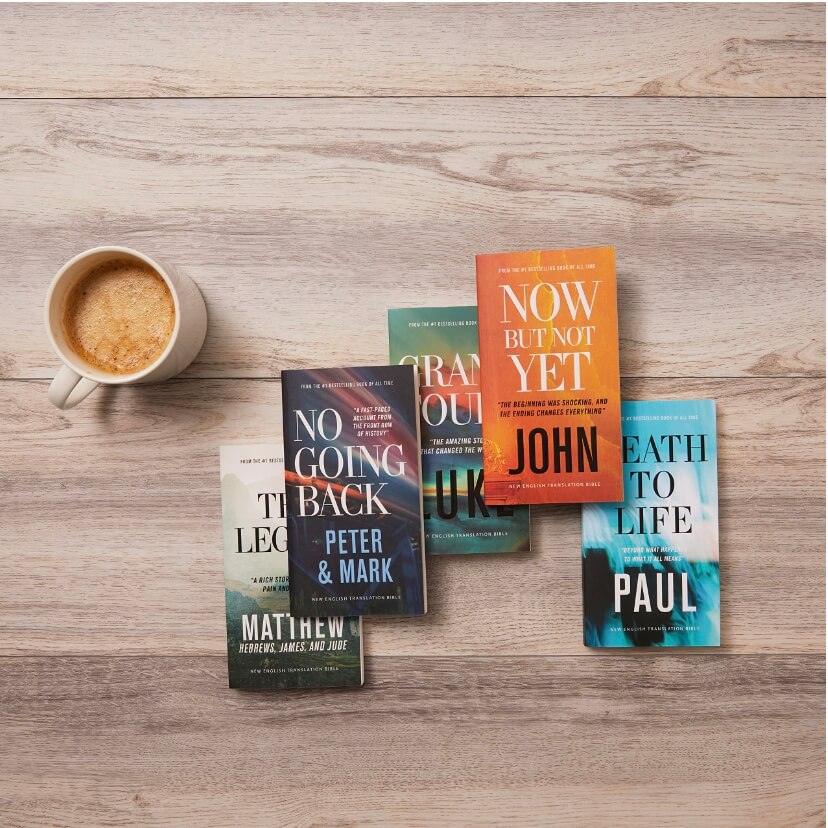From Tony: I’ve known Julie Anne for decades. She and our daughter Amy graduated from high school together.
We’ve all had our challenges. Julie Anne is no different. She has quite the testimony. She’s made herself really vulnerable with this guest blog. It sure resonates with me. I love this girl. AND she’s gonna be a brand-new mama here soon!
That’s Julie Anne and her husband Kyle, above. She couldn’t have done any better than if she’d let me pick him out.

Throughout my life anxiety has stolen a lot of my time. A regular dialogue in my mind might sound like this:
“Not again. God, I am anxious. I’m so worried. I can’t breathe.”
The dialogue can be more specific to a situation.
“I drove all the way here and now I can’t get out of the car. Why am I so bad at everything? Why can’t I just get out of the car and do what I need to do like a regular person? I can’t go in. I need to leave.”
And sometimes, it can be downright evil.
“I don’t want to be here anymore. I don’t know how much more of this life I can take.”
When I have a thought like this, the thoughts flood, tears come, panic attacks my body, and I intuitively begin looking for a way out. How can I make this feeling stop, NOW?
To deal with anxiety in the past my, thoughts would spiral to temporary fixes. Plenty of quick fixes and distractions are available online and everywhere. Potent new mushroom coffee, THC gummies, yoga, and the plethora of colorful medications advertised at every gas station. Power affirmations and guided meditations. I could always see another doctor or therapist. I could try carrying around those beautiful crystals or purging my home with sage.
“Who else do I know that deals with this? What advice can they give me? I will try anything to get some relief.”
Before I found the truth, I did manage to find a little temporary relief at times. But in the pit of the night, while driving in my car, on an aisle in the grocery store, or after hearing a triggering remark from practically anyone, the anxiety would rise up and I would shut down. I can still hear a life coach yelling at me to “get those emotions under control!” Instead, I would find a way to get home, bury myself under the blankets, and pray that I did not have to exist for another day. My desperate attempt to find a cure for this feeling led me to some terrible places. I listened to advise from the wrong sources. Wolves in sheep’s clothing. Snake oil salesmen.
The urge to search and try to find something, anything, to fill up this pit of fear and turmoil beckoned me to try to control my thoughts and feelings with medications and chemicals. The people I sought answers from did not always have them or wanted to take advantage of my condition. It was frustrating and disheartening.
Now, get this. I was a practicing Christian at the time I was walking around in so much crippling fear. Eventually, I cried out to God. Today I still wonder why my faith was one of the last resources I turned to. Only when I was desperate at the last minute. How distracted by the world I must have been. But I remember thinking, “Jesus is a wonderful counselor, right? And if I knew someone else was dealing with this, I would tell them to pray or pray with them.” So why was it so difficult for me to make that decision for myself? I began to ponder if I really trusted God at all.
It can be so easy to tell others to trust God, have faith, and that God is in control. But do I really believe it myself when faced with a trial of my own? Trusting God is a different story when confronted with the unknown when you lose a job or a relationship. Those nagging, “what if” questions crop up. This happens to me when I am alone in the middle of the night. So I realized perhaps I needed more practice at what I preached. I felt like a fraud, and the rehearsed Sunday School answers were not going to be enough to get me where I needed to be in my faith. I remembered the Priscilla Shier “Armor of God” study that took me through the book of Ephesians. And then I remembered that I had a sword, also known as the Word of God.
Ephesians 6:17 And take the helmet of salvation and the sword of the Spirit, which is the Word of God.
So how do I deal with this now? How can I prevent these anxious feelings in the future?
I saturate my mind and spirit with the Word of God. My own personal sword to imagine cutting through the walls of the anxiety pit. I am mindful of what I hear, watch, and surround myself with. Bible study is the most useful tool I have discovered that will help me right when I need it the most. With practice, the Word becomes alive and active in my life. Phrases from passages I have studied in depth come into my mind just as quickly as the thoughts that cripple me into a pit of nausea and doom. Stories that showed me the truth about God’s character replay in my mind, and I think to myself, “Oh wow, this is just like what I read about. I know what to do. I know what God did then, and what he can do now.”
Now, it’s easy to look up a helpful bible verse when you find yourself in a pit. A quick Google search of “verses to help with ____” can lead to plenty of biblical quotes, scriptures, and uplifting blogs. Don’t forget the memes and the “Not Today, Satan!” merchandise. However, for me, this was another quick fix. The verses became mere words and lost their meaning at times. The sweet, friendly reminders that God is love and that I should never be anxious just didn’t hit deep enough for me to find true relief. I needed to dig in. Undisciplined, I prayed to fall in love with the word, and I did.
Studying the context the verses came from became a fascination of mine. I have been led to study different books of the bible in a way that gives me knowledge of the book’s author, the background, and the audience, and to consider throughout what the book or part of the book says about God’s character. Then I ask myself how that knowledge reflects on me. It is remarkable what comes to mind about how I can use the scripture I just studied in the future. I can give credit to this strategy to Jen Wilkin, who I like to call my “biblical literacy coach”. She encourages Christians to read the bible without looking up someone else’s interpretation of the text’s meaning.
There is an indescribable peace that comes from knowing the context in which the verses come from, and many times during a moment of panic the exact words and phrases come into my mind. I remember that God is real. I really can trust him. I recall times I trusted him before and how everything worked out. Maybe not as I imagined or would have planned, but I can rest my anxious heart in His hands a little easier.
Another thing God revealed to me about suffering is that I don’t have to carry around my anxious thoughts alone. I talk to my pastor when the situation is enough to bring me to the point where I simply cannot control my thoughts. I look for people at church in positions of leadership, and friends in my life group. I confide in them and ask for prayer. Talking about my struggles out loud with another person really does take the power away from the fear and anxiety I experience.
It takes a certain amount of courage and willingness to be vulnerable in front of another person. When I do not have the ability to be vulnerable, I pray for willingness and let God do his work to make me open my heart and mind. I can, of course, always get on my knees and pray about it directly to God. However, God’s ways are mysterious and higher than mine. He does not always immediately grant me an answer or a sign. God has forced me to put my pride aside and taught me to to be humble by allowing the anxiety to stir until I have to talk about it with someone.
When you have been hurt by people, trusting someone else is not easy. If that is the case I pray for God to give me discernment and to place people in my life that I can trust. Even just one person. When I am willing, he is faithful to provide me with the right people he personally equipped to teach and guide me.
(Ephesians 4:11-13 “And he gave the apostles, the prophets, the evangelists, the shepherds and teachers, to equip the saints for the work of ministry, for building up the body of Christ”)
One mistake I made was only talking to other people about my problems. I do need to pray and talk to God about it, too. If I go to too many people, I get too many ideas. Sometimes I forget that my discernment can be unreliable if I’m relying on just my own understanding. God has shown me that he wants me to come to him with everything. He wants to be a part of the conversations I have with other Christians. When I ask him to be there, he is faithful. I feel especially aware of his presence when the person I talk to prays with me.
(Psalms 32:8 I will instruct you and teach you in the way you should go. I will guide you with my eye. Matthew 18:20 For where two or three gather in my name, there I am with them.)
Why me, God? Why do I have to deal with this?
God is with us in our suffering. I have often wondered why I get anxious in the first place. Why can’t God just heal me altogether so that I never have to feel this way again? But then I think about how much I have gained from dealing with it. I said before that trusting God was easier said than done. But when thrown into the fire, where I have no choice but to burn up in fear or finally let go and take the hand of the one I claim is my Savior, I am forced to trust. Then I have an actual experience to add to my testimony as proof to others (and to myself!) that God can be trusted and that he cares for me so much. If I lived nothing but I peaceful, comfortable life, these experiences would not be authentic. I need to go through trials and suffering in this life so that I can boldly tell others with confidence that God will take care of them in their own struggles. I can share my real experiences and give back to the One who sacrificed so much for me.
(Psalms 46:7 The Lord of Heaven’s Armies is among us; the God of Israel is our fortress.)
When it comes down to it, I can be grateful for the pain because it gives me a purpose. My purpose in life is to know God and make him known. Anxiety is definitely a thorn in my side, but as I mature in faith, I am grateful for the opportunity to use it to help others in the same battle. We all have the opportunity to see the gift in the suffering, and the hope that comes from knowing we have eternity with Christ in the end. One day, all the suffering will come to an end. No one will struggle with fear and anxiety.
(Revelation 21:4 He will wipe every tear from their eyes. There will be no more death or mourning or crying or pain, for the old order of things has passed away.)
(Revelation 21:5
He who was seated on the throne said, “I am making everything new!” Then he said, “Write this down, for these words are trustworthy and true.”)
If you struggle with fear and anxiety like me, my heart goes out to you. Does any of this pique your interest in studying the bible? The book of Philippians is a great place to start. It’s only four chapters! I recently discovered a 6 session study with another one of my favorite bible teachers, Jennie Allen. The study is titled “Get Out of Your Head, A Study in Philippians”. I am actually going through it right now, and I highly recommend it. I will be writing about my experiences during this study in the future. I look forward to sharing with you and I pray that if you are struggling, God will do for you what he has done for me.
Be well on your journey, united in Christ we stand.










